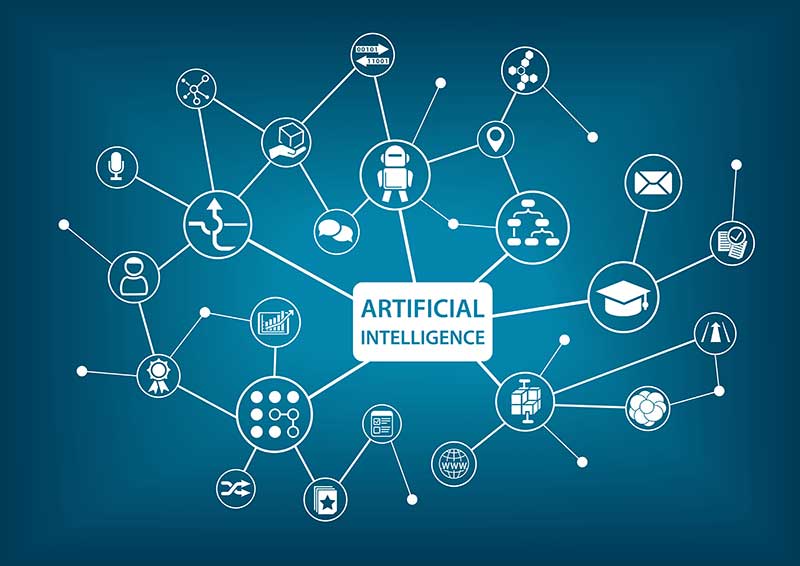The impact of artificial intelligence on the built environment
Contents |
[edit] Introduction
Built environment professionals believe that artificial intelligence is going to have a significant impact on how they work – according to a survey conducted over summer 2017 by ICE.
The survey results revealed:
- 73% of built environment professionals think that AI will have a significant impact on their organisations.
- 78% of built environment professionals are positive about the impact of AI on the sector.
[edit] Key findings from industry AI workshop
The potential impact of AI on the built environment sector was also discussed at a workshop convened by ICE and the National Infrastructure Commission.
Attendees included tech companies, civil engineers, contractors and academics.
The discussion was split into 4 sessions. The key findings were:
[edit] Performance
AI will lead to substantial improvements to the design and delivery of infrastructure, in turn boosting productivity levels. But in order for this to be realised there is a need to embed data expertise across the sector.
[edit] Transition
Piloting and testing is necessary if machine learning and AI technologies, together with robotics and virtual reality, are to transform the built environment. Likewise, cultural change and leadership across industry is needed to drive the AI revolution.
[edit] Governance and data
The pace of technological change and the data requirements associated with AI mean that creating a governance framework is very challenging. Issues around privacy, security and intellectual property also need addressing.
[edit] Skills and ethics
Civil engineers of the future will require different training and skillsets to get to grips with AI, including greater crossover with other disciplines like social sciences. There is also an immediate need for interested parties to work together to create solutions to the ethical question marks that exist in relation to AI.
[edit] Future ICE research and discussions into AI
ICE plans to hold further round-tables and workshops to explore these big issues and themes in more detail. There are many other questions that the built environment sector should explore in relation to AI including:
- In what areas should the built environment sector concentrate efforts to pilot AI?
- How can an approach to project procurement that favours long-term value over lowest cost be incentivised?
- How should the application of AI in the built environment sector be taught in civil engineering degree courses?
For more information and to read the full findings from the workshop see here.
This article was originally published on 11 Sept 2017 by ICE. It was written by Ben Goodwin, ICE Policy Manager.
--The Institution of Civil Engineers
[edit] Related articles on Designing Buildings Wiki
- 5G, AI and construction in China.
- Articles by ICE on Designing Buildings Wiki.
- Artificial intelligence and civil engineering.
- Artificial intelligence and surveying.
- Augmented reality in construction.
- Construction is an industry ripe for tech disruption.
- Engineering in the 21st century.
- The impact of digital on civil engineering.
- The readiness of UK companies to adopt new digital technologies.
- The rise of 5G in buildings.
- Virtual reality and manufacturing.
Featured articles and news
A change to adoptive architecture
Effects of global weather warming on architectural detailing, material choice and human interaction.
How big is the problem and what can we do to mitigate the effects?
Overheating guidance and tools for building designers
A number of cool guides to help with the heat.
The UK's Modern Industrial Strategy: A 10 year plan
Previous consultation criticism, current key elements and general support with some persisting reservations.
Building Safety Regulator reforms
New roles, new staff and a new fast track service pave the way for a single construction regulator.
Architectural Technologist CPDs and Communications
CIAT CPD… and how you can do it!
Cooling centres and cool spaces
Managing extreme heat in cities by directing the public to places for heat stress relief and water sources.
Winter gardens: A brief history and warm variations
Extending the season with glass in different forms and terms.
Restoring Great Yarmouth's Winter Gardens
Transforming one of the least sustainable constructions imaginable.
Construction Skills Mission Board launch sector drive
Newly formed government and industry collaboration set strategy for recruiting an additional 100,000 construction workers a year.
New Architects Code comes into effect in September 2025
ARB Architects Code of Conduct and Practice available with ongoing consultation regarding guidance.
Welsh Skills Body (Medr) launches ambitious plan
The new skills body brings together funding and regulation of tertiary education and research for the devolved nation.
Paul Gandy FCIOB announced as next CIOB President
Former Tilbury Douglas CEO takes helm.
UK Infrastructure: A 10 Year Strategy. In brief with reactions
With the National Infrastructure and Service Transformation Authority (NISTA).
Ebenezer Howard: inventor of the garden city. Book review.
Airtightness Topic Guide BSRIA TG 27/2025
Explaining the basics of airtightness, what it is, why it's important, when it's required and how it's carried out.
























Comments
Really good post! If you are interested in AI, don`t skip to check our new article. You will find very interesting questions and answers by Rob Charlton! https://geniebelt.com/blog/industry-experts-talk-ai-rob-charlton-on-the-future-of-artificial-intelligence-in-construction